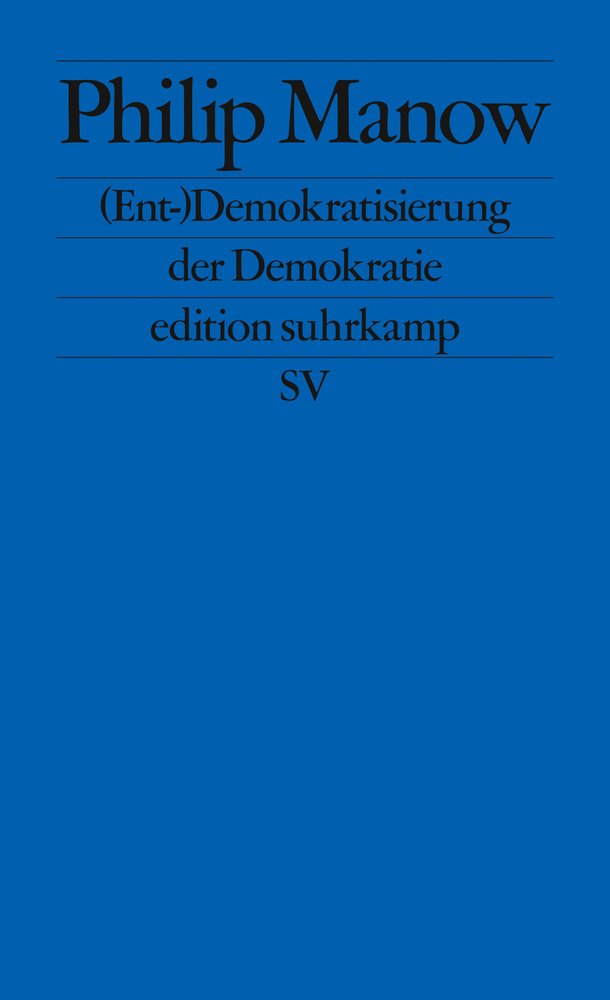Demokratie gegen Demokratie - illiberale gegen liberale, direkte gegen repräsentative Demokratie, vielleicht sogar »the people vs. democracy«? Es scheint, die Demokratie war noch nie so unumstritten wie heute, während zugleich noch nie so umstritten war, was aus ihr folgt. Jeder tritt in ihrem Namen an und beschuldigt den Gegner, ein Gegner der Demokratie zu sein.
Der Demokratie droht heute nur noch Gefahr von ihr selbst. Unsere Lage, so die These Philip Manows, ist von der gleichzeitigen Demokratisierung und Ent-Demokratisierung der Demokratie gekennzeichnet: Es ist die drastische Ausweitung von Partizipationschancen, die im Zentrum der Krise politischer Repräsentation steht. Diese Krise aber transformiert den Streit in der Demokratie zu einem Streit über die Demokratie - der ist jedoch demokratisch nicht zu führen.


